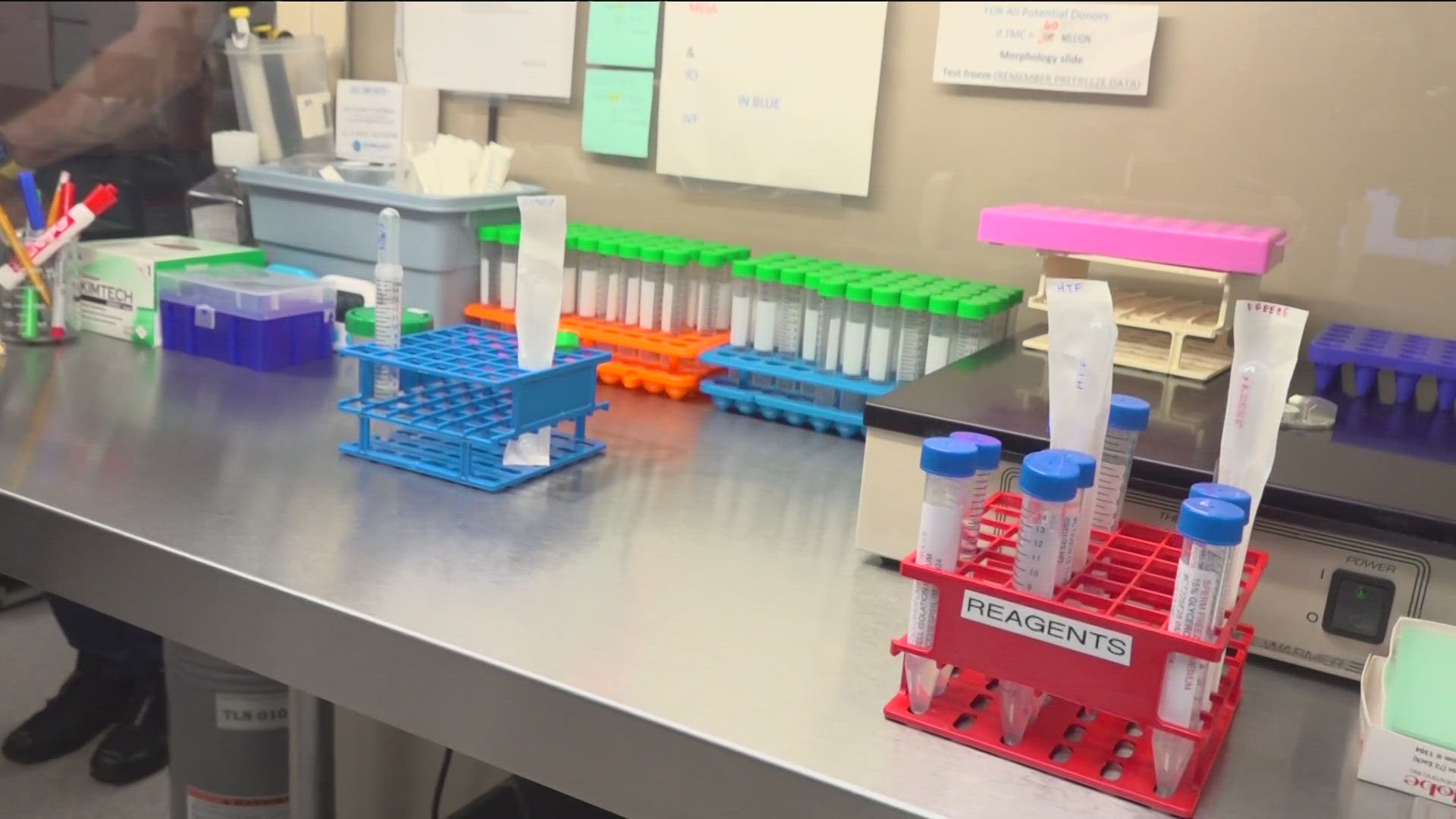SAN DIEGO — Postmortem sperm retrieval can make a man a father, even after his unexpected death.
A La Mesa doctor is a leader in the procedure and took his time to walk CBS 8 through the process.
It’s an uncomfortable scenario, a decision that, by definition, is made in emotionally traumatic times. But, ultimately, it could bring loved ones left behind a reason to hope.
Male Fertility and Sexual Medicine Specialists in La Mesa is a one-stop-shop.
The clinic hosts several companies that specialize in men’s sexual health and reproductive issues. They do everything from freezing sperm for future use, to vasectomy reversals and some fertility help for women.
The work here is essentially about giving life, but the latest branch on the tree of practices is a little different.
Doctor Martin Bastuba is the Director of Male Fertility Specialists. He says one of the driving forces behind his decision to do postmortem sperm retrieval is that it can offer families solace in a time of great pain.
The procedure isn’t new, it’s been done for decades, and Doctor Bastuba is a big proponent.
“It is legal to do in the state of California," he said. "And I deeply believe it is ethical to do and make sense to do.”
They have strict guidelines. Doctors will only do the procedure when the death involves a married couple that had planned to start or grow their family. Common law marriage counts as well. They also talk to the parents of the man who died, whenever possible, to make sure everyone is on the same page.
The process can start any time of the day with a phone call that goes to Mel Cohen, the Chief Operation Officer at the clinic. Once he gets a call, he goes through an extensive checklist including medical history before a candidate is cleared.
Once the candidate is approved, things move quickly. If someone is in a crash or some other type of tragedy, and the man is physically dead, they need to have the procedure done within 24 hours.
Although doctors have done retrieval in these scenarios as far as 72 hours out, the longer the wait, the less likely there will be viable sperm to work with. If a man is brain dead, but on a ventilator, they have more time.
They work with 17 teams throughout California and it’s a relatively simple procedure. Doctor Bastuba says they cut through the skin of the testicle and take a small portion of testicular tissue and sometimes even tissue from the epididymis.
From there, the sample goes to the practice’s Andrology laboratory. Andrology is the study of male hormones and sperm. The next step is frozen storage in a secure vault.
After that, there is a waiting period of at least one year before Doctor Bastuba will move forward. They also require a widow to undergo psychological testing before they will start a pregnancy. The pregnancies can only be done through IVF, because of the low number of sperm available in postmortem retrievals.
Doctor Bastuba says the wait is important.
“We want to make sure that they’re not making a decision out of despair," he said. "We want to make sure it’s going to be a positive thing.”
He adds that it’s actually rare for a woman to move forward with a pregnancy in this scenario. In two decades of doing the procedure, he says they’ve only had four successful pregnancies.
This is for unexpected deaths. Doctor Bastuba says they encourage men hoping to start a family, who will be going into high-risk situations, like a military deployment, to freeze their sperm ahead of time, if they plan on having a family. He also recommends freezing to men who are having vasectomies. It turns out, he does a lot of vasectomy reversals.
The procedure costs $4,000 and that includes a year of storage for the frozen sperm. It’s not covered by insurance.
There can be legal complications with some financial issues such as trusts and wills. Doctor Bastuba and his practice recommend a woman talk to a lawyer before moving forward if those kinds of issues are likely to come up.
WATCH RELATED: Chula Vista couple celebrating three new babies after struggles to conceive

